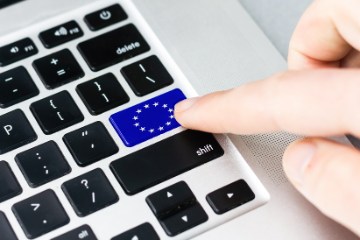
Understanding the General Product Safety Regulation in the EU is nowadays of great importance for all the players in the manufacturing industry dealing with Product Compliance. The General Product Safety Regulation (GPSR) is a pivotal component of the European Union’s product safety legal framework. Effective from December 13, 2024, it supersedes both the General Product Safety Directive and the Food Imitating Product Directive. This regulation aims to modernize product safety standards in response to the challenges posed by digitalization.
Introduction to the GPSR
The General Product Safety Regulation (GPSR) represents a significant advancement in the European Union’s commitment to ensuring product safety. Scheduled to take effect on December 13, 2024, the GPSR not only replaces the General Product Safety Directive and the Food Imitating Product Directive but also sets forth a contemporary framework designed to tackle the emerging challenges brought by the digital age.
What Does the GPSR Entail?
Comprehensive Safety Standards
The GPSR mandates that all consumer products marketed within the European Union adhere to strict safety standards. This directive encompasses a variety of goods, ensuring that each product sold under the GPSR umbrella is safe for consumer use. It includes specific responsibilities for businesses to uphold these standards consistently across all sales channels, including physical stores and digital platforms.
A Robust Safety Net
One of the cornerstone features of the GPSR is its role as a comprehensive safety net. It provides critical protections against hazardous products that may not be specifically covered by other, more targeted EU legislation. This ensures that in the absence of sector-specific safety laws, the GPSR will maintain a baseline of consumer protection.
Objectives of the GPSR
Ensuring Comprehensive Safety
The primary objective of the GPSR is to guarantee the safety of all consumer products, particularly those incorporating emerging technologies. This proactive approach is crucial in a world where technological advancements rapidly make their way into consumer products.
Regulation of E-commerce
The rise of e-commerce has significantly changed how products are sold and distributed. The GPSR addresses specific challenges associated with online sales, especially the responsibilities of online marketplaces. These platforms are now required to conduct thorough checks to ensure that all listed products meet EU safety standards, reflecting a shift towards greater accountability in the digital marketplace.
Enhancing Enforcement and Surveillance
Enhancing the enforcement of regulations and the effectiveness of market surveillance are vital to the success of the GPSR. By improving oversight mechanisms, the EU aims to ensure that all market participants adhere to the same high standards of consumer protection.
Streamlining Recalls
Improving the efficiency of product recalls is another critical aspect of the GPSR. The regulation aims to ensure that consumers are quickly informed and provided with necessary remedies when products are found to be unsafe. This responsiveness is key to maintaining consumer trust and safety.
Timeline and Adoption Process
The development and implementation of the GPSR involved a detailed and inclusive process:
- June 23, 2020 – September 1, 2020: Solicitation of feedback on the regulatory roadmap.
- June 30, 2020 – October 6, 2020: Conduct of an open public consultation.
- June 30, 2021: Proposal of the Regulation for Product Safety by the European Commission.
- November 28, 2022: Reaching of a provisional political agreement by the Council and the European Parliament.
- December 21, 2022: Approval of the provisional agreement by Coreper I.
- January 24, 2023: Endorsement of the agreement by IMCO.
- March 30, 2023: Adoption of the text of the GPSR by the European Parliament.
- April 25, 2023: Formal adoption of the GPSR by the Council.
- May 23, 2023: Publication of the GPSR in the Official Journal of the EU.
Frequently Asked Questions
What products does the GPSR cover?
The GPSR applies to a wide array of non-food consumer products sold on the EU market, ensuring their safety and compliance with EU standards.
How does the GPSR address challenges posed by online sales?
It imposes stringent obligations on online marketplaces to verify the safety of products sold on their platforms, enhancing consumer protection.
What are the key enhancements introduced by the GPSR?
The regulation highlights the precautionary principle, strengthens traceability requirements, and mandates comprehensive accident reporting and market surveillance.
Latest Developments
Stay abreast of the latest updates and press releases regarding the GPSR implementation:
- European Commission’s Press Release on June 12, 2023
- News Item from November 29, 2022
- Official Press Release from June 30, 2021
Product Compliance law firm in the Netherlands
For any legal inquiries or support in the Netherlands and for understanding the General Product Safety Regulation in the EU, please feel free to contact our adept team at MAAK Advocaten.






